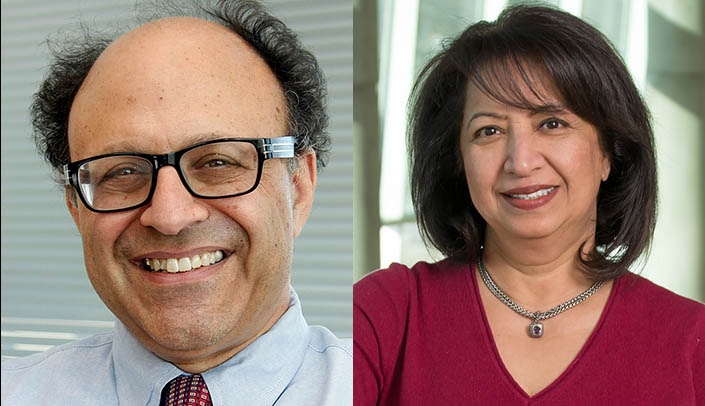The Chronic HIV and Aging in NeuroAIDS Center (CHAIN) and the Nebraska Center for Substance Abuse Research (NCSAR) will host a two-day joint colloquium Oct. 23-24 in the Durham Research Center Auditorium, Room 1002, from 8 a.m.-4 p.m.
Organizers of the event are Shilpa Buch, Ph.D., professor and vice chair of research, department of pharmacology and experimental neuroscience, and director, NCSAR, and Howard Fox, M.D., Ph.D., professor and executive vice chair in the department of pharmacology and experimental neuroscience and senior associate dean of research and development, College of Medicine.
“The goal of this event is to bring together leaders in the fields to discuss emerging topics, foster new ideas and collaborations, and educate new and established investigators,” Dr. Buch said.
The CHAIN Center, which is supported by the National Institute of Mental Health and its Centers Program for Research on HIV/AIDS and Mental Health, is hosting the first day. This colloquium, the sixth in the series, will focus on “NeuroHIV — from bed to bench side.”
“Research from the labs has progressed to the clinic,” Dr. Fox said. “The next question is ‘what is now needed from the lab to continue this progress?'”
The first day will cover clinical manifestations of HIV infection in the brain followed by an interactive panel discussion with the speakers, all leaders in the field. The session will be relevant to neuroHIV researchers and clinicians.
NCSAR hosts the second day. The NCSAR, established in 2015, recognizes the serious public health problem caused by abused substances and recognizes drugs of abuse as one co-morbidity in individuals with HIV.
The focus is “Substance Abuse — Lessons Learned and Where Are We Going?” Leaders in the field will address the topics of substance abuse and the underlying mechanisms. The day also will end with an interactive panel discussion with the speakers. The session will be relevant to both basic and clinical researchers in the field of drug addiction and its neurological consequences.
This year, the colloquium will include short talks on both days from early career investigators from the CHAIN Center and NCSAR providing them an opportunity to present their current work.
As in the past, in addition to the Omaha audience, the colloquium is presented as a free webinar, available nationally and internationally. Registration is required for the webinar.
Visit the colloquium website for a list of all speakers and topics.
Breakfast and lunch is provided each day for the first 50 attendees.
